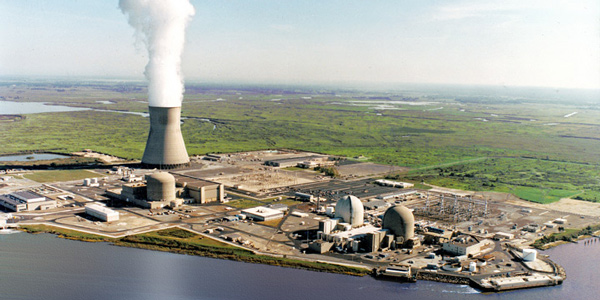By Rory D. Sweeney
The Artificial Island (AI) transmission project could change or become unnecessary if the two nuclear plants it’s intended to support are shuttered, but retirement threats by plant owners aren’t sufficient to revise the project, the PJM Board of Managers said last week.
The board made the acknowledgement in response to concerns highlighted by the Delaware Energy Users Group in a March 12 letter. Michael K. Messer, the group’s president, urged the board to re-evaluate and potentially cancel the project following threats by owners of the plants, Exelon and Public Service Enterprise Group (PSEG), to close them. (See Del. Group Seeks to Block Artificial Island Project.)
“I can say with a degree of certainty that the retirement of one or more plants at the Artificial Island site would impact the scope of the transmission project,” PJM CEO Andy Ott, a board member, wrote. “However, at this time, absent announced retirements of either Salem or Hope Creek, the project assumptions remain intact.”
Exelon and PSEG have announced that they will cancel future capital investments at the two Salem nuclear units they co-own and shut the plants down if New Jersey doesn’t provide them financial support. The state legislature on Thursday passed a bill that would provide the plants with subsidies costing ratepayers about $300 million per year. (See NJ Lawmakers Pass Nuke Subsidies, Boosted RPS.)
The AI transmission project was developed to address transmission stability problems at Salem and the neighboring Hope Creek unit in southern New Jersey and allow them to operate at full power without a book-size compilation of operating constraints. PJM’s first competitive solicitation under Order 1000, the Artificial Island project has been long mired in controversy. In June, the RTO announced several cost allocation alternatives that would shift much of the $280 million price tag from Delaware ratepayers to those in New Jersey and Pennsylvania. (See PJM: AI Costs Would Shift to NJ, PA Under New Allocations.)
Ott confirmed Messer’s concerns but said any changes to the project would be considered during the system reliability analysis if either plant submits a deactivation notice. “I agree that the analysis proposed by your letter is analysis that PJM should undertake to determine impact to reliability should a plant announce retirement and subsequently impact the Artificial Island project,” he wrote.




